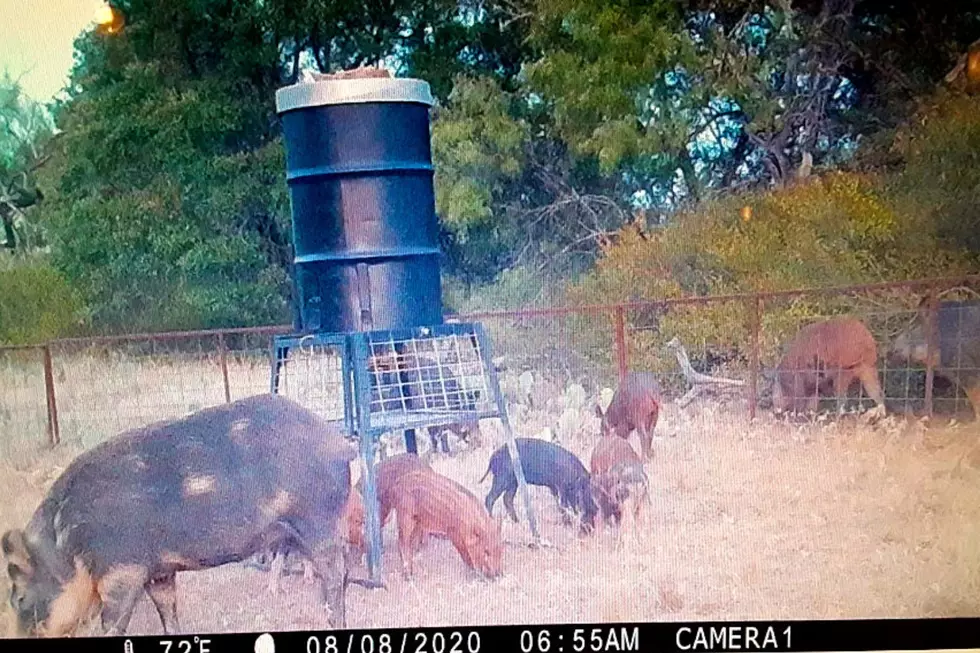Texas A&M Reports Feral Hogs Can Transmit Diseases to Humans
Recently several released reports have been cautioning hunters and land managers to use extreme caution when handling feral swine. The main reason for their concern is that feral hogs carry many diseases that can be transferred to humans.
One of the latest reports from 'Hunting Insider' and Jimmy Watson says many of the diseases that can be transmitted to humans can also be shared with dogs, cattle and other farm animals. So if other animals cross paths with feral hogs there "could be" a transmittance.
It can happen, but it's not that easy says Texas A&M AgriLife Research Center Don S. Davis. First off the diseases are transmitted through fecal and saliva contamination. So feeding of cattle by placing it on the ground where hogs may have soiled the area is certainly one way.
The most important part to remember is to handle feral hogs carefully and know what diseases and their symptoms are.
Wild hogs can carry pseudorabies, brucellosis and leptospirosis, with the latter two diseases causing flu-like symptoms in humans. “Leptospirosis is prevalent in northwest Louisiana and it’s something humans can catch,” Hasapes said. “It is evident in 80 percent of the hogs we’ve tested, although the animal may not show symptoms, but 12 percent of feral hogs are actively infected.” Consider the warning of Hasapes, who urges area residents to keep themselves and their pets safely away from wild hogs. Pseudorabies is a viral disease carried by 8.4 percent of pigs, with cows, goats, dogs, cats and raccoons also susceptible. It is shed in saliva and nasal secretions and can survive for several hours on humid days. “And it can kill a dog in 24 hours,” Hasapes said.
Source: Hunting Insider & Texas A&M AgriLife Research
The video above shares the 'Feral Hog Biology Basics' so we can better protect ourselves from feral hogs.
More From KEAN 105









